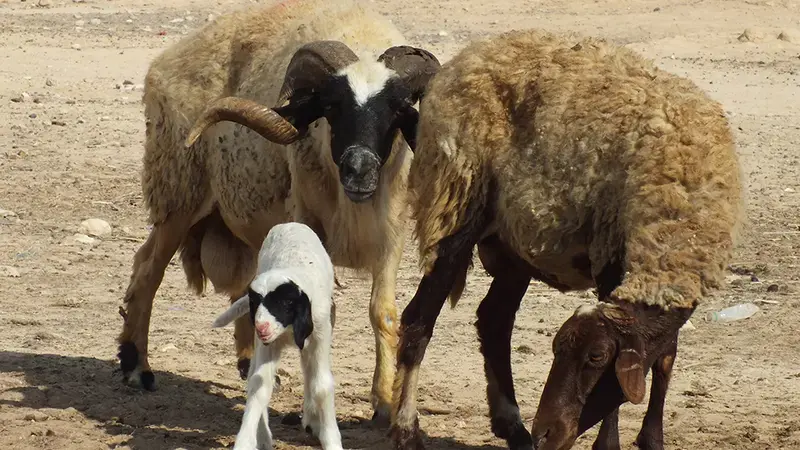Resilient livestock production in a changing climate

With funding from the Government of Egypt, ICARDA's Small Ruminant Genetics and Genomics team, the Animal Production Research Institute (APRI), and Iowa State University launched an analysis on the genetics of sheep and goats indigenous to the drylands to determine how their genetic 'fingerprints' best suit them to be resilient in the face of climate change.
The drylands face a constant barrage of challenges: climate change is exacerbating extreme weather patterns that include droughts, heat waves, and water shortages. And the worldwide increasing demand for animal products means that small-scale farming and livestock-producing households will depend on the income and food security that these animals provide.
As such, understanding the genetic basis of how desert sheep and goats adapt to biotic and abiotic stresses is crucial. The analysis undertaken compared desert-adapted Barki sheep and goats in the Coastal Zone of the Western Desert in Egypt to various breeds of sheep and goats raised and bred in temperate environments. The study found significant genetic differentiation and divergence between the livestock bred and raised in desert zones versus those in temperate zones.
The analysis also indicated that adaptation was influenced by a complex network of interacting genes rather than a single gene influencing one particular characteristic. Those that make Barki sheep and goats more adaptable to hot arid climes include genes that affect muscle function, metabolism, the development and function of the nervous and endocrine systems, thermo-tolerance, body size and development, and autoimmune and inflammatory response and regulation.
The study was a promising step towards mining the genetic potential of adaptable indigenous livestock to provide the foundation to breed appropriate small ruminant genetic resources to mitigate against food insecurity and instability in increasingly volatile climate events. Additionally, it creates a foundation for exploring the evolution and genomics of different species co-existing in common environments.
